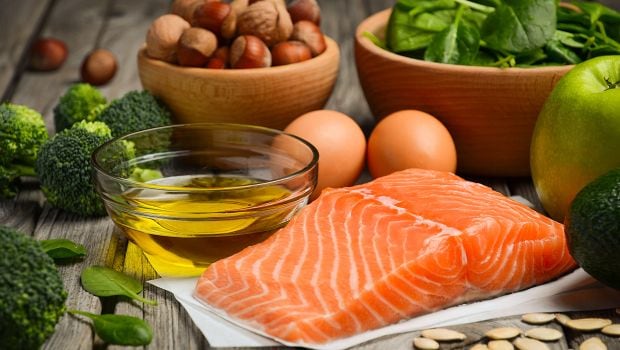
You may have come across the terms ‘fats’ and calories’. They are on every nutrition label of packaged foods you buy from super-stores, are often used by your gym instructor if you’re a fitness freak and your dietician may have told you to avoid them if you are trying to lose weight. The most common weight loss advice given to anyone is to burn fat and burn calories. Unfortunately, both the terms are often used interchangeably, but they are really different from each other. It is very important to understand the difference between fats and calories to be able to lose weight or even maintain it and reach your goals effectively. So, here’s all that you need to know when it comes to fats and calories and how they are different from each other.
What Are Calories?
Calorie is a unit of measurement used to indicate the amount of energy released when the body breaks down (digests and absorbs) food. As the food breaks down and is digested, it releases calories. When it releases more calories than needed by the body as energy to sustain, the extra calories get stored as fat. As long as your body is using up all the calories released by the food you eat, you may be able to maintain your weight. Whenever there is an imbalance, you tend to gain weight. All food items release calories, be it from a carbohydrate source, protein source or fat. One gram of carbohydrates has four calories. A gram of protein also has four calories. One gram of fat has almost double the amount of calories – nine calories!

What Are Fats?
Fats are one of the six essential nutrients required by the human body to stay healthy. They are a sub-group of lipids and are known as triglycerides. Fats play an important role in chemical and metabolic functions in our body. Our body needs fats as building blocks for nerve tissues and for the production of hormones. Fats can also be used as fuel by the body. When a person eats fat that is not utilized by the body, it is stored in the fat cells. This stored energy is used by the body in case of deprivation of food.
Certain types of fats are beneficial and necessary for your health. Instead of cutting out fat completely from your diet, consume foods rich in unsaturated fats. Bangalore-based nutritionist Dr. Anju Sood suggests, “There are three prime nutrients. Carbs that generate energy, proteins that work essentially for muscle building, and fats which are important for insulation, nerve sheath coating and smooth functioning of your hormones. Therefore, by cutting down on fats completely you are hampering your health.”
Dr. Sood further adds, “Around 15 to 20 percent of your calorie intake has to be fat, out of which 50 percent should be from visible origins (ghee, butter, and oil) and the other 50 from invisible origins which are already present in the food you eat. Recent studies have noted that you need to have 3 parts of poly-unsaturated fatty acids and 1 part of saturated fats for optimum health.”
To summarise
According to Nutritionist Dr. Simran Saini from Fortis Hospital in New Delhi, “One must know that a certain set of calories are generated from everything you consume, whatever may be the source. On the other hand, fat is just one of the ingredients of a balanced diet which produces calories and any excess of it is stored in the fat cells that leads to weight gain. Hence, it is always recommended that you go easy on fats, however, don’t discard them completely.”
Now that you know the difference between fats and calories, plan your diet accordingly, and kick-start your weight loss journey with the right knowledge.
[“source-food.ndtv”]
